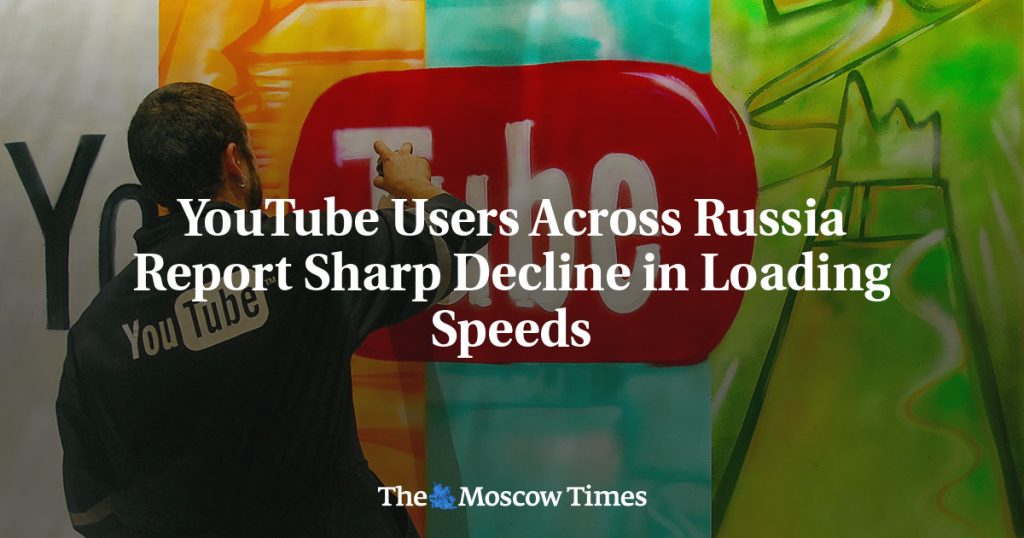Users in Russia are facing sharp declines in YouTube loading speeds, with online monitoring platforms reporting spikes in outages in major cities like Moscow and St. Petersburg. This comes after Russian authorities criticized YouTube for not restoring pro-Kremlin channels. Russia’s state-owned telecom giant warned of technical problems leading to the slowdown, and a senior lawmaker claimed that download speeds would drop by 70% on desktop browsers. Simultaneously, Russia’s state media regulator demanded that Google CEO Sundar Pichai restore over 200 YouTube channels belonging to pro-government Russian media and public figures.
Despite reports of YouTube being throttled in Russia, Kremlin spokesman Dmitry Peskov stated that the platform was working normally from his perspective. Google, the owner of YouTube, has not publicly commented on the situation. YouTube has become an essential platform for dissenting viewpoints in Russia as the government tightens control over internet and media freedoms. Russian authorities have accused YouTube and Google of spreading “terrorist” anti-war content since the invasion of Ukraine in 2022, raising concerns that the platform could be blocked entirely. Monetization and payment-based services in Russia have already been suspended by YouTube due to the war in Ukraine.
The Moscow Times, an independent journalism outlet, is facing challenges in Russia as it has been labeled as “undesirable” and a “foreign agent” by the Prosecutor General’s Office. Despite attempts to silence independent journalism in Russia, The Moscow Times continues to provide accurate and unbiased reporting. The journalists at The Moscow Times refuse to be silenced and are calling for support from readers to continue their work. By supporting organizations like The Moscow Times, individuals can defend open and independent journalism in the face of repression by the Russian government.
The actions taken by Russian authorities against independent media outlets like The Moscow Times are part of a broader crackdown on dissenting voices within the country. The throttling of YouTube in Russia and demands to restore pro-Kremlin channels indicate the government’s efforts to control the flow of information and suppress opposing narratives. The tension between tech platforms like YouTube and authoritarian governments like Russia highlights the ongoing battle for internet freedom and access to unbiased information in restrictive environments.
As tensions between Russia and Western countries continue to escalate, the control over online platforms and information dissemination becomes increasingly important for both the Russian government and dissenting voices seeking to share their perspectives. The throttling of YouTube loading speeds in Russia is a reflection of the broader challenges faced by independent media outlets and individuals who rely on digital platforms to engage with a global audience. The support for organizations like The Moscow Times is crucial in defending press freedom and ensuring that unbiased reporting continues to reach readers despite government censorship and interference.


